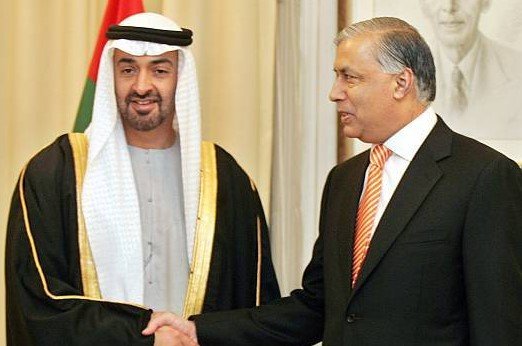Muhammad Yunus urges Riyadh to invest in energy, pharma, and production sectors as Crown Prince invites him to Riyadh investment forum
In a bold pitch to deepen economic ties, Bangladesh’s Chief Adviser Muhammad Yunus has proposed that Saudi Arabia consider setting up manufacturing hubs in the South Asian country. The offer, made during a high-level diplomatic meeting in Dhaka, signals Bangladesh’s growing appetite for foreign investment—and Riyadh’s search for new global production bases.
At the heart of Yunus’s proposal is a simple idea: Bangladesh offers cheap labor, a strategically placed location near major shipping lanes, and a fast-developing industrial infrastructure. Why not make it a Saudi manufacturing outpost?
A Friendly Visit With High Stakes
The conversation unfolded during a courtesy call at the State Guest House Jamuna, where the newly appointed Saudi Ambassador to Bangladesh, Abdullah Zafer bin Abiyah, formally met Yunus for the first time.
It wasn’t just small talk. The ambassador delivered a personal invitation from Crown Prince Mohammed bin Salman, asking Yunus to attend the 9th Future Investment Initiative Forum in Riyadh this October.
But Yunus had his own cards to play.

In the closed-door meeting, the Chief Adviser emphasized Bangladesh’s eagerness to become a partner in Saudi Arabia’s economic diversification plans. He pointed out sectors that could benefit from joint ventures and capital injections—from oil refineries to hospitals.
The meeting may have looked ceremonial from the outside. Inside, though, it was more like economic matchmaking.
Why Bangladesh? And Why Now?
There are a few reasons why Dhaka’s offer might resonate in Riyadh.
Bangladesh has one of the youngest labor forces in Asia, with a median age of just over 27. Wages remain among the lowest in the region, yet the country has made significant strides in improving ease of doing business and digital connectivity.
For a Gulf economy looking to outsource non-core production, Bangladesh starts to look like a smart, low-risk option.
Yunus stressed three things:
• Geostrategic location: Bangladesh connects South Asia to Southeast Asia, with ports in Chattogram and Payra opening sea access to global routes
• Affordable workforce: Labor costs remain competitive even compared to Vietnam and India
• Sectoral potential: Energy, pharma, healthcare, and light manufacturing are all ripe for investment
One official present during the meeting said the Chief Adviser “spoke with clarity and conviction,” noting that Saudi production plants could be up and running within months in the right conditions.
Energy and Pharma: Bangladesh Seeks Long-Term Investment
Yunus didn’t stop at factories. He also encouraged Saudi investment in oil refineries, health education, hospitals, and pharmaceuticals—sectors where Bangladesh is trying to climb the value chain.
The country imports nearly all its fuel. Local refining capacity is limited, and investment from Saudi oil majors could plug a glaring gap. The pitch? Build a joint venture refinery in coastal Bangladesh, reduce dependence on imports from third parties, and open a fresh export channel.
On the healthcare side, Bangladesh is home to a growing pharma industry that already exports to more than 150 countries. But infrastructure and capital remain bottlenecks.
Saudi Arabia, which has been looking to expand its overseas healthcare footprint, may see value in acquiring or funding local firms to serve both domestic and regional markets.
A senior economic adviser in Dhaka said: “If the Saudis want long-term strategic positioning in Asia, these are the areas to look at. Energy and health—they’re non-cyclical, high-demand, and underdeveloped here.”
Saudi-Bangladesh Ties: A Quiet But Steady Rise
Though the two countries share strong cultural and religious links, economic cooperation has been modest. Remittances from Bangladeshi workers in Saudi Arabia have long formed the backbone of their relationship.
But now, things are shifting.
Last year, trade between the two nations crossed $2 billion for the first time. And Bangladesh is keen to turn the relationship from labor-export to capital-import.
In recent months:
• A Saudi delegation visited Bangladesh’s Economic Zones Authority (BEZA) to explore investment in special zones
• The two governments signed MoUs in renewable energy and digital services
• Bangladesh has requested preferential treatment for its exports to the Gulf Cooperation Council
Officials say the invitation to the FII Forum in October is a sign that Riyadh is willing to take the partnership up a notch.
A Forum That Could Seal the Deal
The Future Investment Initiative (FII), often dubbed “Davos in the Desert,” is Saudi Arabia’s flagship event for attracting global capital and partners. The 9th edition this October comes at a crucial moment for Vision 2030, Crown Prince Mohammed bin Salman’s reform program.
Bangladesh’s invitation to the forum isn’t symbolic—it’s strategic.
If Yunus attends, he could be rubbing shoulders with CEOs, fund managers, and sovereign investors who control hundreds of billions in capital. Deals made there often carry real weight.
And Yunus, known for his pragmatic style and pro-investment stance, is expected to pitch hard once again.
One diplomat summed it up plainly: “Yunus doesn’t want a handshake. He wants contracts.”
